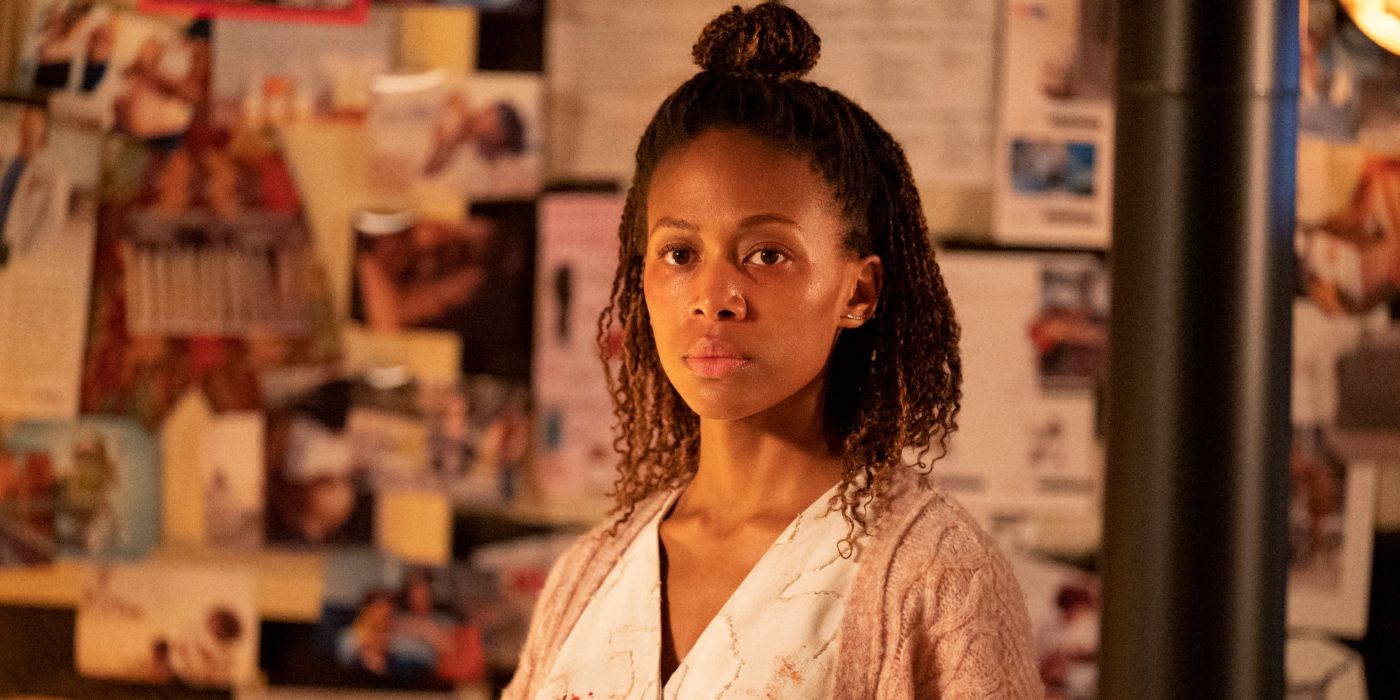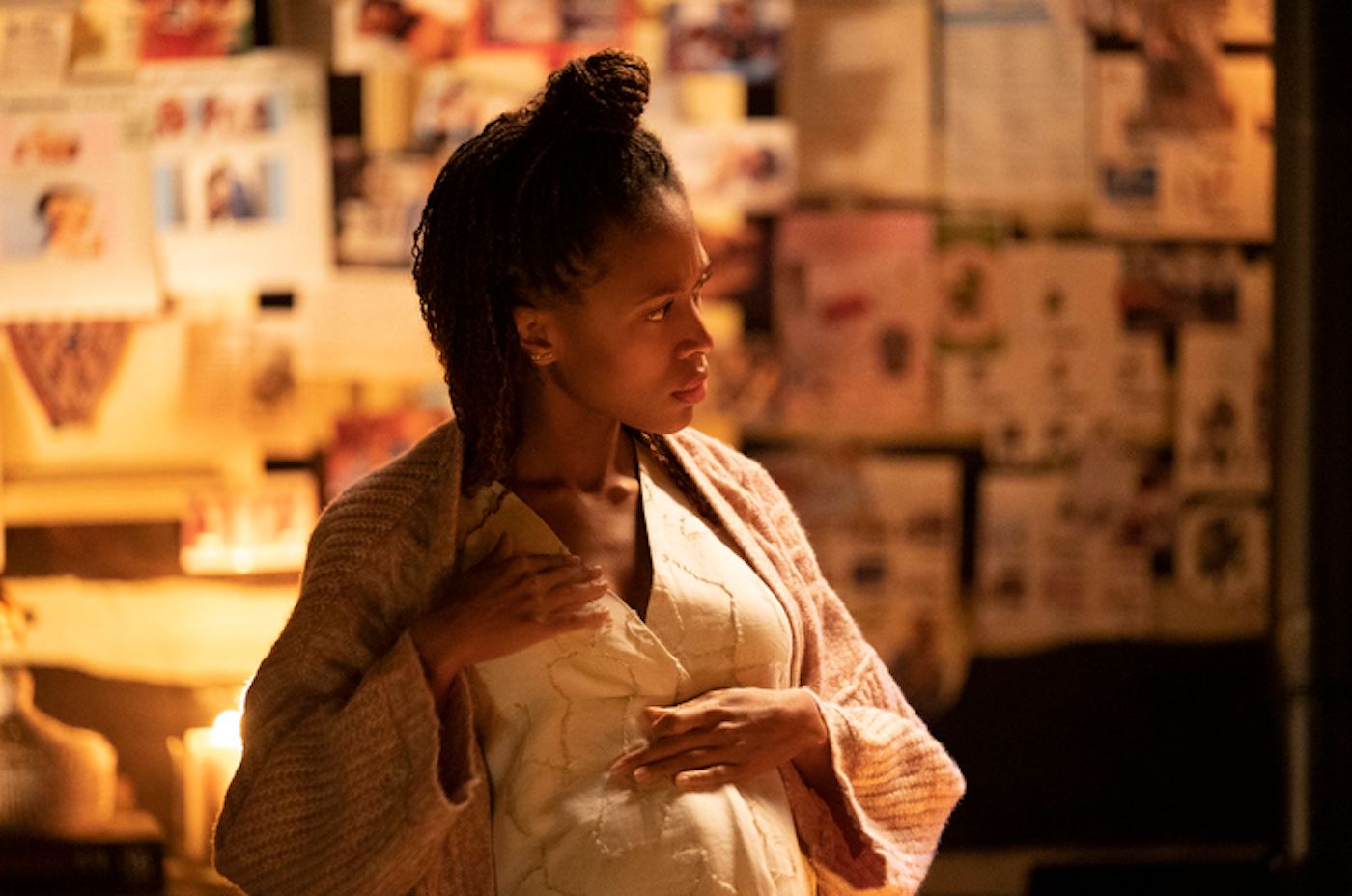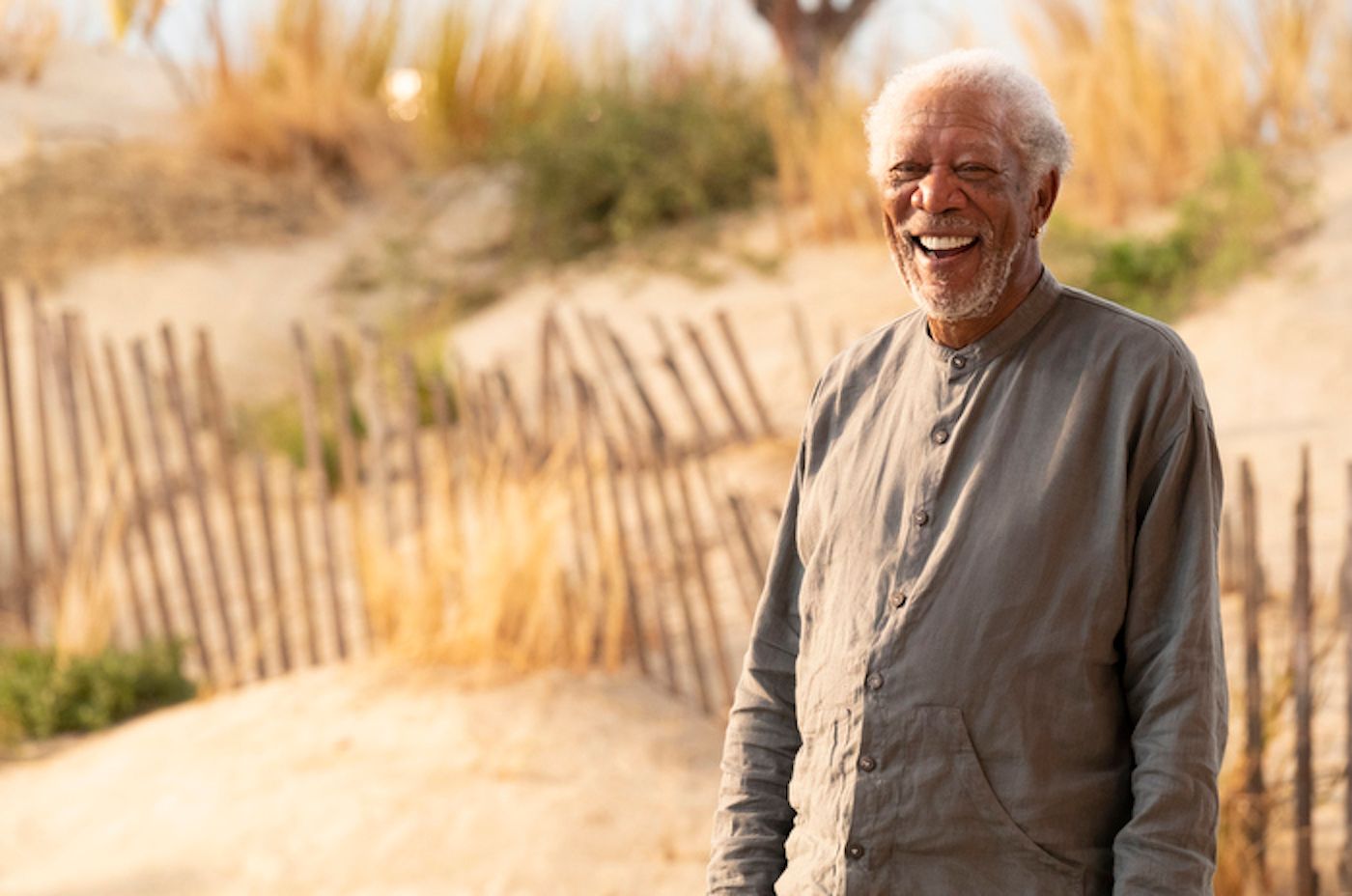From creator David Weil, the seven-part Amazon Prime Video original anthology series Solos is an exploration of what it means to be human and all of the emotions that come with that, spanning across the present and future. Human connection can and does take many forms and often intertwines with technology in different ways, whether through time travel, A.I. bots, smart homes, fertility treatments or memory transplants. The series stars Uzo Aduba, Nicole Beharie, Morgan Freeman, Anne Hathaway, Anthony Mackie, Helen Mirren, Dan Stevens and Constance Wu.
During a virtual junket to discuss the series, Collider got the opportunity to chat 1-on-1 with Nicole Beharie about the “Nera” episode, her love of anthology series, going on a ride with this storytelling, how little she knew about the twists in the story before reading the script, collaborating with episode director Tiffany Johnson on the three-day shoot, and what it’s been like for her to adjust to working with all of the safety protocols. She also talked about the appeal of the upcoming limited series Scenes From a Marriage.
Collider: With Monsterland and Solos, you’ve been doing some anthologies, which normally seems rare. Were you surprised that more than one of these projects has come your way, or do you personally like that structure of storytelling?
NICOLE BEHARIE: I love that you picked up on that. And I did Black Mirror too. I’m obsessed with it. As an audience member, I enjoy them because maybe I have a short attention span, but I also enjoy knowing there’s a theme to the series and that I’m going to be getting different experiences with different casts. I personally think it’s really fascinating to see what people can do with the same goal, idea or world. I love them, I really do. Hopefully, I can do them forever. And you’re in and out. It’s really cool. The people who are making these anthology series are super creative and they’re also the kind of people that like to try new things every single time. Knowing that it’s gonna be short lived, you can take bigger risks. That’s also something that’s really seductive about it.
You also tend to go into an anthology series thinking that you know what you might get, but then you realize just how vastly different that can be.
BEHARIE: Yeah, I love that. Look, we’ve been stuck in our homes and I don’t know about you, but I feel like I’ve seen everything, so it’s nice when something actually catches me off guard and I’m like, “Oh, I’m on a ride.” I’m forgetting about the actors and I’m just having an experience. And I really feel like that’s what this provides for audiences. It’s completely different than anything else out there.
When this was presented to you, what was the pitch for the series? Did they give you a an overall sense of what it would be, or specifically just your episode?
BEHARIE: I actually only got my episode. I knew that they were gonna be solo performances, but I did only get my episode. And then, (show creator) David [Weil] mentioned it’s in a futuristic world and there’s a throughline, but he didn’t reveal too much, which I actually think was useful, just to be completely in your world. They took the responsibility of making it all come together, which I think that they did seamlessly. They just came to me and were like, “Look, there’s a lady in the future. She’s having a baby at a cabin in the woods, in a storm by herself. What do you think?” I was like, “Oh, okay.” And they were like, “There’s gonna be a Black female director and a Black female wrote it.” Tiffany Johnson and Stacy Osei-Kuffour are amazing and two people who I’m huge fans of, so I said, “Let’s do it.” And then, I was like, “You guys want me for this?” It is daunting, that task being front and center the entire time and with the entire responsibility on you. I’ve seen some of the other episodes and ours has a lot of choreography and movement, and the tone is a little different as well. It’s a treat for the audience to feel a different tone with each one.
Did you know that there would be these unexpected twists to it, or did you discover all of that, as you read the script for the first time?
BEHARIE: They literally said to me, “She’s having a baby and she’s in a cabin,” so no, they didn’t give away anything. That’s also the reason why I’m trying to be like coded in our conversation. I think it’s fun to actually take the ride and not give it away. We tried to commit to that, even while being in it. I didn’t want to get ahead of it, as the story progressed. There’s a certain tone to it. In the beginning, you don’t feel that there’s a lot more brewing.
Because this anthology series explores the deeper meaning of human connection and what that means for these different individuals, it’s not a big flashy story, but is instead focused on human emotion. How was your experience of really getting to dig deep into personal and human feelings?
BEHARIE: The idea of waiting for a child, and then it coming and you’re alone, my character is out at this cabin to prepare, but I think she had always imagined having friends and family, or at least her doctor or someone there. There’s a victory or a sense of power and accomplishment, having this child by herself, successfully, until things take a turn for the worse, or go in a different direction than she had planned. For me, sci-fi with heart is what I’m calling it. It’s like when you have a genre story, but it’s not about the lightning and the thunder and the flashes and the green lights and people transforming. There’s not a lot of fanfare. It’s really about connection and possibility.
I can’t imagine how scary or terrifying her situation would be, stuck out there alone while everything is unfolding and not knowing what’s going to happen next.
BEHARIE: Exactly. That’s the craft of Stacy, our writer, and David, who created such wonderful circumstances for all the characters. Helen Mirren’s character is the only one voyaging out and testing out this experimental journey and technology. All of the ideas that we’re being exposed to are completely mind-altering. I just feel lucky to have gotten to take some of that ride, but also that it’s not real.
How did you find the experience of working with your director Tiffany Johnson? Was it a very collaborative experience? Did you guys talk about this a lot?
BEHARIE: Absolutely. We talked about it quite a bit, as much as we could. The shoot was three days. It was very short, so we had to just jump in. She had choreography ideas, and I had ideas about the character and how to make it very intimate and just ground it. At a certain point, it was like, “Okay, we’ve gotta do this,” so we just did it and there’s something really magical about that. There’s something in the spirit of the bare bones of acting, just jumping in and doing it without a huge crew or a lot of people to work with. It’s just you. It was amazing working with her. Hats off to her because we did that in three days. That really was quite a feat. There was a lot in this particular episode that changes and moves. Hopefully, the audience enjoys it and it works for everybody.
It seems like the only downside of a project like this is that you have an incredible cast, but you don’t get to actually work with any of them. Did that bum you out?
BEHARIE: I’m gonna give you that one. That is one hundred percent true. We never met. I met Dan [Stevens] on set because he was coming in as I was leaving. But it’s still an honor just to be in the same community and the same family.
You do get to have Morgan Freeman narrate your characters’ lives.
BEHARIE: That was a major moment for me. My family doesn’t take me seriously. But when they heard Morgan Freeman, they were like, “Oh, something’s happening here.” It was a big moment. He’s such a spectacular person.
How are you finding the experience of getting back to work, with all of the safety protocols? Does it feel like a surreal and alien adjustment, in that way, while the acting part of it is the same?
BEHARIE: It does. I could lie to you and say it doesn’t. I was thinking about it and I was gonna lie to you, but it’s weird, having masks on, and then all of the nose swabbing and testing. When you’re dealing with children, or just the way that you touch people, you have to be careful and follow all of the rules. There are things that you never would’ve thought about before. It changes things, but it also probably makes us more grateful and sharper. The actors, because we did have so much time off, didn’t take a moment for granted. I shot something else after this, where I actually had other actors to work with, and we were all just relieved to be in the space with other people and working again.
You’ve also signed on to do the HBO limited series Scenes From a Marriage, which is a TV series adaptation of a movie. What was the appeal of that for you? Had you been interested in the film?
BEHARIE: I love movies from that period. That’s Ingmar Bergman. That was so beautiful. It’s just one of those things that you never imagine you’d be a part of, as a tiny woman of color. So, when the opportunity came up, I jumped at it. I love Oscar Isaac and I love Jessica Chastain. They’re incredible actors, so to be in a scene, much less get to really go in with them, was such a treat. After shooting this, going in and being like, “Oh, people!” And it was great people, at that. It was a huge gift. And Corey Stoll is incredible. It’s just another really nuanced, intimate character-driven story that’s very, very different than this.
Solos is available to stream at Amazon Prime Video.



